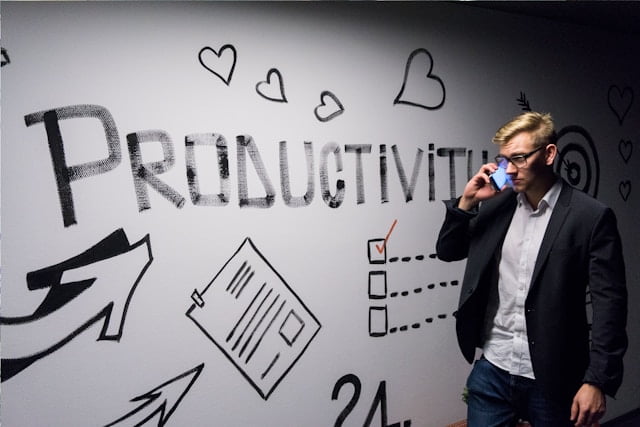
Success in life is part courage and part action. You can make a difference in the workplace because they are in harmony. In this episode, James and Jane pick some situations they experience in life as managers and dive into improving colleague confidence. They share some empowering insights to manage their team suffering from a lack of confidence. Tune in to this episode to gain more ideas from our hosts.
—
Listen to the podcast here
Management Challenges: Improving Colleague Confidence
We are here again with another episode. Jane, what are we focusing on? What’s our context? What’s our focus in this episode?
This is another episode in our series on management challenges. You read these before and I know some of you have been reading so that’s great. In this series, James and I are picking out some situations that either of us has experienced in real life in management or that we know managers quite often face. We are having a conversation about where we’ve experienced them, how we might address them and things that we think are relevant to think about in those situations.
It’s always a little bit interesting when we do these because we haven’t prepped a huge amount. They’re very much conversations like two managers would have or like you would have about a situation at work with your peers. It’s a chance for us to explore a little bit of a topic as well. Sometimes we’re not even sure which topics we’re going to talk about that day. You are getting us at our rawest, which a lot of you have said that’s something you quite enjoy reading about, our initial perspective. That’s what we’re doing. We’re doing a management challenge episode.
We are talking about rebuilding self-confidence when someone in your team has lots of bit of confidence and James will talk a little bit more about that. We’ll talk a little bit about the context. We’ll share a little bit about our reflections, where we’ve experienced it and how we’ve approached it if we have. We will do a little bit of a dive into what dealing with this challenge might look like before. As always, summarizing what we’ve learned from and then getting out of here.
It’s like a manager problem session so it’s fun. Let’s see where we go with it. Though our context, we did try and pin it down a little bit in advance so we’re pretty clear on it. We think that the situation we’ve got that we’re focusing on is that you’re managing a team. It’s competent and delivers fairly well. Things have been going pretty well for years but one of your team members has been working on another project that ultimately failed to deliver. It’s closed down and they were sorted to the team. It didn’t work out for them in that project and they’ve returned to your team but they’ve lost their confidence.
They’re not who they were. You got a good relationship with them. You know that previously when you worked together, they were confident, contributing, trusted, dependable and well-contributing members of your team and they should still be. They still seem to be capable. They can still deliver pretty well. They’ve lost that confidence in their ability to do stuff. They’re less confident in terms of technical knowledge and their decision-making as well as their ability to collaborate and build relationships. It’s like the whole rug was pulled underneath them in terms of their confidence.
They don’t want to take the lead on stuff. They’re stepping back, asking for more advice, support and guidance from you. They’re needing more from you to help compensate for their lack of confidence. They’re not comfortable taking things on and you’d love to help them get back to being that confident self that you think they are. That’s our situation and we’re going to explore a little bit about that situation and what you might be able to do. As Jane said, we’re checking out some ideas and talking them through.
Before we share some of the things we might do in that situation, Jane, if that were us or we were advising somebody, have you been in that situation? Has that been you? I can never imagine you having lost that much confidence but have you been a confidence-lost person? Have you managed somebody who has lost confidence? Have you coached or worked with teams where that’s happened?
I was thinking about this and I’ve been in all three scenarios. I’ve been the person who’s lost confidence. I’ve been the person managing the person that’s lost confidence and I’ve also been the person that has ultimately delivered the news that the project has failed and therefore, a lot of the loss of confidence, I felt like it’s my fault even if it’s not necessarily my fault. I felt I had some hand in it.
I don’t see a lot. I haven’t seen it recently but particularly earlier in my management career, I saw it on two occasions. One in particular is very memorable when I was managing someone and I struggled to get over the guilt of putting them up for that project. Even though they wanted it and they were ready for it, I knew it was going to be difficult. It was my first chance to let someone else into my work area and it was hard for them.
If I’m honest, I found it quite hard to know what to do and get over my guilt of putting them up for that project and helping them move forward. It was a little bit sad. I felt a little bit like I’d robbed this person or somehow been responsible for them losing. With reflection a few years later, I realized that there are a couple of things I should have done differently as a whole team and also for this person that would’ve helped. I also see them as much more of a part of a learning journey, generally for lots of people. What about you?
I was thinking as you chatted. I’ve got a few connections with this. On a personal confidence type of thing, probably like a lot of people, my confidence goes up and down all the time. Sometimes it’s based on real factors. Sometimes it’s based on the stuff that goes on in my head where I’m like, “I’m great. I’m going to do this well.” The next day, I’m like, “What am I doing? I can’t do any of this stuff. Who am I?” I get that up and down but that trending piece is longer a trend of confidence. It happened occasionally but was not a huge part of my experience.
There’s something interesting that has only occurred to me at this moment, which is that in my experience of it when I’ve lost confidence, I realize how much that taught me from a very practical sense as well as all of the stuff about how to be a bit more resilient in terms of confidence. The practical things, those moments of feeling lacking in confidence super turbocharged my learning experience because it hurt so viscerally at the time to feel like I lost my confidence that I was tenacious in trying to figure out to avoid that ever happening again. You brought me back to a moment where I was like, “I never want to feel like it again.”
For me, when I’ve been in situations where I’ve lost confidence, it was this hubris-type thing as well, beating myself up for having been confident before as well and all those layers.
I was thinking that was being raised as a Catholic. I thought that was the thing.
No. Maybe that sleep everywhere but something. I have seen specific things with others as well. I’ve seen this specific example of people being seconded out and coming back less confident. I’ve seen examples where people have lost confidence in different ways. One of the things where I’ve seen it maybe a bit more often is where, for example, people have been seconded into things I’ve been doing.
Throughout my working life, I did a huge amount of project work and quite often there would be people who join a project which is on the receiving end of this context. They are super confident. They’ve spoken well and demonstrated skills. They have a career history that’ll help them. They get involved and they’re confident at the start but then after a few weeks, maybe they realize that things are complicated, difficult or it’s not all quite as easy or as wonderful as they thought this type of world might be.
I’ve seen people spiral at that transition stage a little bit in that low confidence that they convinced themselves that it’s an easy thing to do. They’ve got all the skills and all that stuff and then that ebbs away. It’s helping them build that up. Learning and delivering is something that you need to do. It’s almost as part of our team-building piece if you’re in a project-type delivery space, which is a bit different to our focus but it’s probably the closest I’ve been to this.
Helping your team build confidence, learn, and deliver is something managers need to do. It is part of the team-building piece.
It’s a bit different. You know this better than me, James. What’s that effect where you don’t know what you don’t know until you don’t know what you know?
Dunning-Kruger is overconfident based on their skills effectively.
There’s something interesting about what you were saying about people coming into that room and not knowing what it takes to do that well. If you haven’t been prepped or supported to understand that, you’re much more likely to have that crashing moment.
I thought it was so simple.
I’ve been sounding off about how I can do it and straight away you’re on a back foot then.
It seems simple to lead to crashing into a wall or it goes down. We’ve all been there like, “It’s obvious. I’ll do this.” “We tried that.” That’s something I’ve looked at. Why don’t we look a little bit at ways we can think about this or things we might want to reflect on if we’re in that situation and looking to help somebody with this confidence? I want to start by checking out with you. Have you got any questions or things we should reflect on or ask ourselves at the start of that to understand the situation a little bit more? What do you think? How can we be a bit clearer on what we’re dealing with here?
You have to understand that there are a few things and my first point as a manager from my perspective is I always take two approaches. One is what can I find out that I don’t know? Do I understand what led to their loss of confidence? What were they not confident about? How are they feeling or experiencing that? The second thing is always, because it’s who I am and it’s probably not a bad place to start, what would I have done if I had been them? What could I have done differently as their manager to help them succeed in the project? For me, there’s something important about getting to the bottom of what went wrong to help rebuild that person’s confidence in you as a manager.
Maybe something didn’t go wrong that was to do with them. Projects get pulled all the time and stuff happens that maybe it isn’t a wrong thing. That’s a bit of a cul-de-sac.
It’s a good point because if someone comes off the project, when you’re close to it, you might not be able to get that distance and might be beating yourself up and going, “I think it wasn’t my fault but surely it was my fault, at least in part.” It’s if you can trust your manager and your manager’s response. If it’s a manager and you can say, “I’ve looked at this and this is my professional opinion about what went wrong,” then at least you’re building that trust between you and your person again to be able to start investigating what’s going on with their self-confidence.
One of the things I’ve seen is until we talked about it and they didn’t necessarily consciously feel this way, they felt like, “You put me up for that project.” I told them they could do it. They were like, “If you thought I could do it, why should I trust you when you tell me I’m good at everything else?” I’ll be honest. I hadn’t thought about that until having this conversation. I remember that conversation and I was like, “Fair.” “Why would you trust me telling you’re great because I told you could do that project and then it went wrong?”
You potentially have that breakdown of a relationship and maybe resentment that slips into it, trusts and all that lovely complex stuff. That’s helpful.
Where would you start with that conversation?
That word sums it up. I’d try and start with a conversation. We can perceive that other people have confidence challenges or that we know some of the root causes of these types of things. At the very beginning, I’d try and have a little chat about this along the lines of, “How are you doing? I’ve noticed some of your behaviors come across as if you’ve lost a little bit of confidence. Does that feel the case? Could you tell me a bit more about that? Is there anything else going on that would be good to talk about?”
I’ll try to understand what this is and a bit of root-causing stuff would be good. We could assume that it’s certain things. Try to assume we’re in a good trusting place for them, have that open one-to-one trusting conversation and a bit of a heart-to-heart like, “How’s it going? What’s up?” Those are good official phrases that you used.
This is the point, as what happens quite often on shows, where I say, “What he said, not what I said.” James is right and that is a classic example of where I went wrong quite often as a manager. I would try and solve the problem without talking to someone. A hundred percent, the first place to start is a conversation with a person about if indeed, it is a self-confidence issue.
If it is a self-confidence issue, get them to put it in their words and articulation so that you can understand firsthand what that experience is and if it’s not what it is. You always start there. Everything I said is also useful but 100%, you start where James said. Start with the person and have an open conversation. If nothing else, they are in a space where they know you care enough to hear from them and you get some extra information from them first. Moving on, James.
I was toying around with this and thinking about it. If I can cut through some of the stuff around the edges, part of me sometimes thinks that if you get into a situation like this, the context and history matter. Things could have potentially shifted so much if it’s an irrevocable situation. We might want to help somebody boost their confidence and return them. Maybe in some of these instances, the best thing for everybody is if they transition somewhere else to another role internally or externally.
I’ve seen so many people who are good at what they do, highly capable, generally motivated people who find themselves in roles that do erode their confidence. That can be a function of their cultures or their experiences, the specific ways of working with their stakeholders or whatever it happens to be. We get to this situation where they lose this confidence and it’s almost like gaslighting because the whole world around them is confirming to them that they should not be confident in these moments.
I’ve seen these people in many instances move to a new organization or team in the same organization and that can be transformational in itself. They can go back to being high-performing people quickly as a result. There’s a little bit of like, “What do we want to do here? How much do we want to fix this? How much do we want to address for root cause?”
Your point is good, James. It provokes two important questions for you as a manager. One is a little bit of an honest self heart to heart. “Do you believe this person is capable of the things you are thinking about within this role? Do you have confidence in them?” Be honest about that with yourself because, in all likelihood, your opinion of them in some way is likely to have been shaped by that project and experience.

Colleague Confidence: Your opinion of them in some way is likely to have been shaped by that project and that experience.
It’s what you think you bring back to the other point you make, which is super important. Is it realistic in this environment that this person can regain their self-confidence? It’s all well and good to want to help someone regain their self-confidence but you can be fighting against a difficult tide if they’ve lost the trust of the team around them or senior stakeholders.
It’s so funny we’re talking about this because I was talking to someone, a brilliant team member. Senior managers lost faith in them. That’s not going to change and that’s not something you can control as a manager. You can try and fight for them but a hard conversation is, is this the right place for them to rebuild versus going somewhere where they have different environments? It’s so important you ask that question and you raise that.
There’s something in there about perception and reality as well. Even if the reality is they’re a very good confident person. If senior people, sponsors, customers, whomever it is or somebody’s got the perception that they’re not, then that whole extra burden of observation and challenge or whatever comes with it raises their attention and the recipient of information’s attention. It can be a spiral that makes it rubbish for everyone. Maybe you get out of there.
I have had the good fortune to be valued by a couple of senior leaders in my life who I have been very aware are not great at this. They love you until you make a mistake and then they don’t. I’ve had people in my team where I think about it. It’s not necessarily been they’ve lost confidence but they don’t have the credibility in the organization or the broader department because that senior leader doesn’t rate them. I look back and think, “Was that ever going to be an environment where they could do their very best? Is it any surprise that their work wasn’t always in the moment and that they didn’t stay as long as I expected?”
You’ve said it. It’s opened up a whole different thought pattern of how you deal with that and judge the scenario. I’m going to steal your point. It’s how to not also almost be parental about it but engage that person in a conversation about the climate and the environment of the team and whether they want to work on retaining governance.
It’s so easy for managers to slip. I do this and I’ve told you this. I slip into that like, “I’ll do it to you. We’ve lost confidence. I’ll fix it. What’s right for you is the best thing here.” We often talk about this. There’s such bravery in helping support someone in their career beyond the organization that you work for. That’s not always popular with HR and larger organizations. In my world, it’s important. The people who have championed my career beyond the organization are the people to whom at my age are still grateful.
As you were chatting, I was thinking about some of these terms. There’s the Pygmalion effect and the Golem effect. You see them popping up and there’s academic work on them and everything. It’s supported by some and disputed by others. We’re not getting into that. What the Pygmalion effect says is that if you demonstrably have belief in somebody, they will perform to a higher level. The Golem effect says if you demonstrably disbelieve in somebody or think that they will fail, then they’re more likely to fail.

Colleague Confidence: The Pygmalion effect says that if you demonstrably believe in somebody, they will perform to a higher level.
Our capabilities are only part of that power of the ability to deliver the context. All that stuff makes a difference in the same way that we make a difference. If I’m a senior leader and I think Jane is great at filling in spreadsheets the way I like, then I’ll also think Jane is great at all this other stuff. I’ll expect her to be good. I’ll give her opportunities and all that. If I’ve come across Jane and she sent me an email with six typos in it, I’ll think she’s useless at email writing but also probably useless at everything else that she does. That complex relationship means that we’ll find ourselves in hard situations.
It’s like you work with me, James. Sometimes, it’s like you know me well. Your point is 100% right. Going back to the topic of the episode, what both of us agree on, is sometimes the answer for rebuilding someone’s self-confidence is helping them find somewhere else where they will be in the best, most conducive environment to do that.
That’s exactly what I was thinking but didn’t have that specific articulation. I’ve got another question for you. We’ve talked about whether maybe they should or not. You brought up the word adult. Sometimes if we get involved with trying to help somebody boost our confidence or something, we do take on a little bit of that potentially paternalistic growth. How do we balance the risk of doing something special for them, having an intervention thing, putting them in special measures, giving them extra care and not having that attention from us and that support in itself?
I’m smiling because I can’t believe James is asking me who is dreadful at this. It’s a good question. I’ll give it a shot and then you can build back. I’ve particularly got it wrong with people who were earlier in their career than me. I was much more careful with people I was managing who had been around the block longer around work. I was much more considerate of this generally. What I learned is going back to goal setting, they have to accept the goal. They don’t have to come up with a plan. They might not have noticed its self-confidence issues. They might think they’re terrible rather than it being a self-confidence issue but they have to accept willingly and embrace that they want to get that back.
The other thing was mentally when I got better at it, I used to frame it as we’re a team on this so what’s my bit that I can do? Crucially, I used to think about them being the captain of that team. If it’s their self-confidence we’re trying to build, I’m there. I can give them suggestions about how I could play a role and what they might do. I can give them space and a place to decide how to lead the two of us through that. Sometimes we’d recruit other people.
I’m not the right person to help you with this. Maybe get some help from one of our more politically savvy colleagues who would get this stuff and help you jump back on the horse so to speak. For me, it was always this is their goal. They might not have identified it because they haven’t worked out. I can do that and that’s fine, which is similar to goal acceptance but they need to lead the charge. They need to be making the time with me to improve it.
If you want to improve it, it’s got to come from the person who’s having the challenge but the idea that I learned that anywhere near the first half of my career, that’s what I would say. That lends well for personal development, generally around soft skills. If you start telling people what’s wrong with their soft skills and they’ve got to improve them, then you’re not going to get very far.
I’m not even sure I’ve learned this stuff yet, to be honest. I’m figuring it out. As you were chatting, I scribbled down a few things and they overlap hugely with where you ended up with that conversation. My verbatim notes are more coaching. Let them know and ask them. They own, decide and accept. I don’t know if I was writing out keywords from what you said in pretending it was my idea. I don’t think I was. I was thinking along the line as well but we never know. Maybe that’s me.
I’m going to elaborate on those twelve words. If we go in and provide a solution, then that can in itself be somebody’s confidence in the long-term. Moving into that coaching type of space or questioning type of space lets the person you’re speaking with tell you that they need some control over the situation, have some of that decision-making of the situation, reach the conclusions, initiate actions and call on you for assistance when needed.
That shifts power to them and through that or control in that situation to them, which can be an enabler of helping boost that confidence but balancing that without leaving them feeling unsupported is the trick there. Make sure they know they’re supported as well. We’re both circling in the same space about helping them accept, own, initiate and lead the stuff.
It’s like a lot of objective setting and goal setting. People don’t have to come up with a plan but my word, they have to buy into it. The more they buy into it and then are given freedom and ownership to drive the shape, they adapt it. There is something about a manager saying, “As long as you want to continue to work on this, I will continue to support you to work on this.” That is an incredibly empowering thing to someone and that creates a whole lot of other challenges.
We’re going to do another episode about it but it brings up a whole set of other problems which is as a manager, how do you then keep the team going while someone else is taking quite a long time to get back up to speed or energy levels. That’s quite a common issue for a number of reasons. The, “I’m here as long as you want to move this forward,” in some senses, from a moral point of view, is such a confidence boost because it’s like saying, “This is how much faith I’ve got you’ll get there. I’m going to still be here and freeing up my time to help you.”
“I’ll support you. I won’t necessarily rescue you but I’m here. I’ll help you on your way out of this.”
To what extent, James, do you think it’s important if at all or helpful to revisit the scene of the crime with that person? To what extent do you think it is or not helpful to think about that project that went wrong? Does that matter? Do you think that’s a part of it? Do you think it’s better to leave it in the back of history or the past?
It goes into coaching-type things beyond my competence. My instinct is I would do a brief reflection to acknowledge and look a little bit for root causes if they wanted to go down that route to support a reflective set of conversations around lessons learned and things that could be different. If I were going down that route, which I’d maybe be led by the person I was speaking to, if possible, I would empathize and talk about situations that I’d been in myself.
I had been part of things that failed, actions I took and things around that because bringing the human element and recognizing that everybody fails and makes mistakes is a destigmatizing failure through that post-mortem process. Looking for lessons to learn, turning that difficult situation into insights that could help us do better in the future could be an enriching conversation provided you did destigmatized failure.
I’d be fairly okay having that conversation but I would want to lead itself to focus a little bit on the future, what we do differently and how we turn this into a good thing. I’d have a conversation but I wouldn’t have it. I’d keep it as much as I could away from conversations about blame and things like that. I’ll try to focus on learning and fact-finding conversation. What about you? Would you look backward or forward?
I look backward individually as a manager, even if I didn’t include them necessarily with it at that stage. Grandiose little brain here would be like, “What could I have done differently? What have I done wrong in all of this?”
Maybe I shouldn’t say this but a little bit of me would be like, “Maybe I want to find out a little bit because maybe they did make a big mess and they shouldn’t be trusted. Maybe I need to get to the bottom of this to pin down my relationship with this person.”
There’s something about the confidence you can build in your opinion and in that person’s wider skills if you can pinpoint where things went wrong. You are more credible. If you go and say, “This is my professional opinion of where it’s gone wrong,” that’s helpful. I also think it also allows you to make sure, “I am a confident person. I can see how this happens and it’s not their problem.” What I would say, going back to your point about future anchored, one of the things is powerful and this is your phrase that I am shamelessly going to steal, the power of the process is massive.
One of the most amazing things you can do for someone is help anchor the mistake in a process failure and help them think about what process they would use in the future. I’m shamelessly sailing phrases you’ve used before but that’s important for someone going forward. You’ve talked about it before and then everyone knows I’m obsessed with measuring inputs versus outputs. If people can have confidence in the process, even if they haven’t got confidence in their skill going forward, they’ve got a better set of check-ins and milestones. They also can be confident about what they’re putting into the project and then eventually results come.
Help anchor the mistake in a process failure and help them think about what process they would use in the future.
It’s that piece around process and believing in the process. Maybe the processes we have are the tools we use often in the workplace. As with many people, I’ve got no understanding of how an airplane works but I have faith in the tools and processes that they have in place to do that. I will happily, blindly follow hundreds of other people under an airplane to set off for some ridiculous journey because I believe the process and the tool are there. I could probably follow some of those checklists to help crosscheck for cabin doors or whatever I need to do to be part of that. Having processes we can have faith in can help us build confidence in what we do.
I also think it distances the person from the action, which is also super helpful. It allows them to say, “I got this thing wrong, not I was wrong.” Not like, “I’ve failed. I didn’t execute the process well enough.”
I like that. That’s helpful and that’s what we see in other places with other things. That’s a lovely point about that separation. If we think about that process piece a little bit, you talked about goals and doing some of those goals or reframing goals and having conversations about goals. Would you try and bring in process-related goals and all that stuff with somebody? Would that be something that potentially you do?
One hundred percent. You make an important point about process goals and the power of helping someone build confidence in what they’re doing versus the result. For those of you who’ve heard me rant on about this before, in sports psychology, there is the idea that it’s not just a straightforward setting goals. There are also process goals, performance goals and then result goals effectively.
The idea is you can control what you do a lot and what gives you an output a lot somewhat. You can do very little to control the rest of the environment like who does what. Focus on the stuff you can control is the idea. That’s helpful when you’re building someone’s confidence because it’s reliable and accountable. It’s in their control. The other thing that I was thinking about, probably my final point on this, is it’s important to lean into someone’s confidence areas.
Generally, when people lose self-confidence, they don’t lose it in everything. They lose it in their judgment or their ability to manage stakeholders and that subsumes everything. For me leaning into what you know they’re good at and they know they’re good at and maybe stretching them into a more senior project or in another way but in that safe space for them is helpful.
I also think stretching them by supporting them to grow others is a great way of helping them understand how much more they know about some things. Yes, they could use mentoring but they could also use being a mentor. I’ve seen some amazing things happen when people are not feeling at their best, not generally lost confidence but generally don’t have a lot of it. If you give them the skills to be a mentor, suddenly they start growing confident themselves. Both of those things are helpful.
Give your team the skills to be a mentor. When you do that they start growing confident themselves.
There’s so much in that last point about being a mentor and being in that position where you can help others and you realize all the things that you know. That’s a lovely point. That’s great. We should start to end that main little bit. We are doing this like a live chat. We’re exploring it as we go. We’re trying to process out loud, think and work out stuff. I was wondering what have you got. Have you got any lessons from this, takeaways or reflections?
If you’ve read the other management challenges, you’ll know that this is at the moment my favorite format of our episodes. I learned so much from it. When I first was thinking about this context, I hadn’t linked, “Is this even the right place for them to build the confidence link?” You made that link when we were having the conversation before we started. I think it’s massive.
Until I said it out loud, I hadn’t thought back to that whole thing. I did a whole thing where in my head, I was like, “They’re the team captain, not me.” I used to work in sports. I was like, “It’s their personal learning journey.” I’d forgotten all of that until we talked about it. I loved how much it anchored me as a manager. In this world, I might be the manager but it’s on them in a nice supportive way. I guess I have not learned stuff but pulled back some things from my past that I enjoyed and felt helpful. What about you?
Finding those links again. Similarly, I’ve got some reflections and reaffirmations of stuff. That seems to come up all the time and stuff that do. There’s a piece about perennial importance context. There isn’t one size fits all solution to any of this stuff. Understanding context is key. That piece around, as a manager, being honest with yourself and recognizing you’ve got this dual set of obligations to your people and organization. Be honest with yourself about situations and what matters. That’s important.
The last thing, which is probably a reflection of where I’m drawing all our conversations, is the human stuff matters. Underlying all of this is our human skills. It almost doesn’t matter about being in a workplace. Can we develop some self-awareness? Do we have a sense of an ability to influence our mindsets and face things in a positive way?
Can we speak to each other in ways where we don’t piss each other off, make it worse and help people feel better? A lot of those skills are so important. Trying to develop skills is great. Like so many of those things, we need to build that stuff and have that stuff before we need to use it. Working on that stuff is key and keep working on it. It’s never the end. That’s my reflection.
I’m on this journey. It’s never-ending.

Colleague Confidence: Find the freedom and liberation of moving from where it isn’t right for you and lost confidence to where people believe and are aligned with you and will help you be who you can be.
You’ll be doing your next doctorate when you’ll be 85. You’ll be doing your third one, turning up at university and all that stuff. It’ll be great.
Let’s not do that. That was a lovely conversation. Thank you very much, James. I enjoyed that. How are you feeling?
I enjoyed it as well. I love thinking at the moment and responding to questions. I feel hopeful about those types of situations. Something that came out for me is that thing about whether is it the right time for somebody to move on. Also often, we frame that as a bad thing and it’s tough but sometimes it’s great, that freedom and liberation of moving from a place that isn’t right to you where you have lost confidence to a place where people believe in you or align to you and will help you be all the things you can be. There is something lovely in that. I feel optimistic across our conversation. How about you?
Me too. I feel pretty good after that conversation so thank you. That brings us to the end.
That’s it for me. Until next time. It’s goodbye for me.






